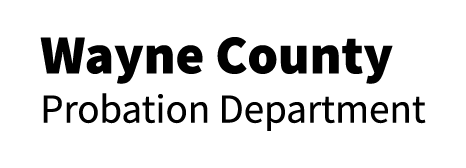Community Corrections
What is Community Corrections?
Community Corrections is an opportunity to remain in the community to serve a sentence imposed by the Court instead of being in jail. Community Corrections houses: electronic monitoring (home detention), community service, CTP (Community Transition Program), and Drug Diversion.
During your period of Community Corrections, you will be supervised by a probation officer, who will assist you in behavioral change and report your progress and actions to the Court in which you were sentenced. Chris Retz is the Probation Officer assigned to Adult Electronic Monitoring, Marcus Wright is the Work Crew (community service) supervisor, and Jennifer Romack supervises youth who are placed on Electronic Monitoring as well as adults placed on CTP and Drug Diversion. Gina Glass is the Director of Community Corrections.
%
An average of 98% of clients on home detention complete successfully.
%
100% of clients placed in the Community Transition Program complete the program successfully.
What are the conditions for Electronic Monitoring?
The conditions of Electronic Monitoring will vary from person to person. A probation officer will always review your conditions of probation with you prior to your sentencing, provide you with a copy of them and allow time for any questions you may have. The standard rules of Electronic Monitoring allow for a person to attend work, church, school, and medical appointments however, other conditions can apply.
When does my Electronic Monitoring term start?
The term of your Electronic Monitoring will start immediately upon your release from incarceration or on your sentencing date if no incarceration is ordered.
What should I expect when I have contact with my Probation Officer?
Your probation officer will ask questions about your home life, work, school, and treatment. Some of these questions may seem very personal; however, they are necessary for your probation officer to identify and assist you in your areas of need.
How often will I have contact with my Probation Officer?
The frequency and nature of contact (such as office visits, home visits, telephone calls, family contacts, employer contacts, and treatment provider contacts) will depend on various factors. Expect to have contact with your probation officer at least once per week.
What is a violation of Probation?
When you do not follow the conditions of your electronic monitoring, it violates Electronic Monitoring. If you do not follow your conditions or are arrested, your Probation Officer may bring your case back to court, including your being arrested on a Violation of Electronic Monitoring Warrant. There will be a court hearing, and if a violation is proven, you may be sentenced to serve the suspended portion of your sentence.
What are some tips for success?
- Review and understand all of your conditions of supervision.
- Think before you act. Slow yourself down and think a few steps ahead.
- Surround yourself with law-abiding people who really want to see you do well, such as friends, family, co-workers, and formal support groups.
- Take ownership of your probation by becoming an active participant.
- Be open to guidance from your Probation Officer.
- The responsibility for making changes in your life is yours.
